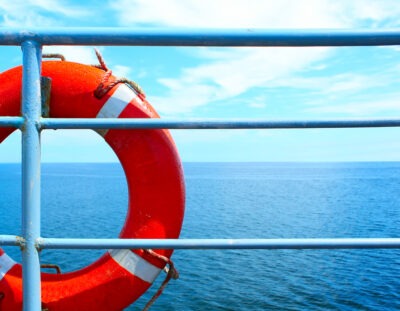
Cruise ship drowning accidents can have devastating consequences, and determining liability often depends on where and how the incident occurred. In many cases, the cruise line may be held responsible if negligence—such as inadequate supervision, lack of warning signs, or poorly maintained facilities—contributed to the accident.
Maritime laws and international regulations also play a role in establishing legal responsibility. If you or a loved one was involved in a drowning incident aboard a cruise ship, speaking with a cruise ship drowning accident lawyer can help you understand your legal options.
Accidents at Sea and Cruise Line Liability
Under maritime law, cruise lines are considered common carriers, which means they have a duty of care to provide safe conditions aboard the ship and during related activities, such as shore excursions. When cruise companies fail to meet this standard, they may be liable for resulting injuries or deaths.
Key Factors That Affect Cruise Line Liability
- Location of the Incident: Legal responsibility may change depending on whether the event happened in U.S. waters, foreign ports, or international waters.
- Condition of the Area: Slippery surfaces, poor lighting, or malfunctioning safety systems may point to negligence.
- Lack of Safety Protocols: Missing life jackets, broken railings, or untrained staff could show a failure to follow proper safety procedures.
- Crew Actions or Inactions: Physical assaults by crew members, delays in medical treatment, or failure to respond to drowning incidents can result in liability for the cruise ship company.
- Failure to Warn Passengers: If the cruise line did not warn about known risks—like rough seas or dangerous water activities—they may be responsible.
Understanding the type of legal liability that may apply can help injured passengers or the families of drowning victims determine whether they may have a valid claim. A cruise ship injury lawyer can review the details, examine the cruise ticket for forum selection clauses and the statute of limitations, and explain legal options for moving forward.
Get the strong arm
Maritime Laws, Contractual Agreements, and Fine Print
When someone is injured or drowns on a cruise ship, legal rights are often shaped by maritime laws and the fine print found in cruise tickets. Cruise ship accidents usually fall under maritime law because they occur in navigable waters, such as oceans or seas.
Legal Issues Hidden in Cruise Tickets
The following are common parts of cruise contracts that can affect a personal injury claim:
- Forum Selection Clauses: These say where a lawsuit must be filed. Some contracts list courts in Florida or California, even if the cruise departed from another place.
- Statute of Limitations: Most cruise lines give passengers only a short period to file a claim, often one year from the date of the incident.
- Notice Requirements: Some contracts require passengers to notify the cruise line within a few months after the accident.
- Choice of Law Clauses: These decide which country’s or state’s laws apply, which can impact the amount and types of damages a passenger can seek.
- Waivers of Liability: Some documents try to limit the cruise line’s responsibility for things like shore excursions or activities in swimming pools or water slides.
Maritime Law and Passenger Rights
Maritime law says cruise carriers must use reasonable care to keep passengers safe. If they don’t fix unsafe conditions, respond to medical emergencies in time, or follow proper safety protocols, they may be held responsible.
In some cases, a cruise ship company might also be liable for medical malpractice if the ship’s medical staff gives poor treatment or delays needed care.
Victims and families may also have rights when an assault or near-drowning happens on board or during a cruise line excursion. These rights can include filing a lawsuit for brain injury, emotional distress, and even wrongful death. A cruise ship wrongful death lawyer can assist in these cases.
Common Causes for Drowning Accidents on a Cruise Ship
Drowning accidents on cruise ships can happen for various reasons. The cruise ship industry offers many exciting water activities, but without proper safety measures, these activities can be dangerous.
These are some common causes of drowning or near-drowning incidents aboard cruise ships:
- Poor Water Safety Protocols: Insufficient safety measures, such as a lack of lifeguards at swimming pools or water slides or poorly maintained pool areas, can lead to accidents.
- Alcohol Consumption: Passengers who drink too much may lose their ability to respond quickly, increasing the risk of an accident in the water.
- Unsafe Swimming Conditions: Unsafe conditions such as strong currents, rough waters, or hazardous pool decks can increase the risk of a drowning incident.
- Faulty Equipment: Faulty equipment, such as damaged ladders or defective flotation devices, can also lead to accidents. Cruise lines are obligated to ensure all equipment is in good condition and safe for passenger use.
- Shore Excursions: Accidents can also occur during shore excursions where passengers engage in boating or water sports. If the shore excursion company does not maintain proper safety standards, the cruise line may be held liable for any accidents.
- Failure in Rescue Operations: Rescue efforts are vital in cases of near-drowning or drowning accidents. Cruise lines may be held accountable if they do not follow their rescue protocols or fail to act quickly in emergencies.
Cruise companies are responsible for ensuring that areas with high water activity are monitored by trained staff. In many cases, negligent supervision in the pool or other water activities may be a factor in drowning accidents.
A Cruise Ship Injury Lawyer Can Answer All Your Questions
If you or a loved one has been involved in a drowning accident aboard a cruise ship, it’s important to consult with a cruise ship injury lawyer. Our team of attorneys at John Foy & Associates can guide you through the legal process, help you understand your legal rights, and assist you in filing a claim against the cruise line.
Additionally, a cruise ship accident lawyer can help you gather critical evidence, such as witness statements, security camera footage, and medical records, which are essential to proving your case. They will also ensure that your claim is filed within the statute of limitations and that you do not miss important deadlines.
Schedule a free consultation today.
404-400-4000 or complete a Free Case Evaluation form





